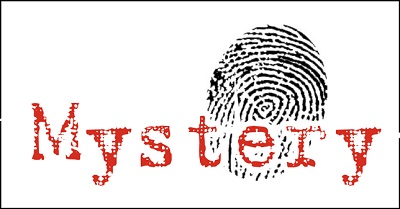Mystery Writer Woes
“Know how your story will end before you begin to write it…think over various solutions to your character’s problem, remembering that she has to solve the mystery herself.” Joan Lowery Nixon

Sounds good, Joan, but I’m clueless about how the mystery novel I’m trying to plot will end, or even what it’s about. So I had a heck of a time completing a writing assignment in my online Mystery Writing class. What to write? My excellent teacher, Steve Alcorn, recommends figuring out what you’re passionate about before plotting a work of fiction. (Ray Bradbury, one of my favorite authors, recommends the same thing.)
“Your passion, the raw emotion driving your desire to write, will lead you to the theme,” Steve wrote. “Theme is what you want readers to take away from the story.” The way to convey your theme, he added, was to create a flaw in your character exactly the opposite of your theme.
I stared at Steve’s words on my computer screen. “What am I passionate about?” I wondered. For one, my magnificent significant other, Barry, a gifted chiropractor AKA the Doc who always gets it right.
For another, my mystery memoir Angel Hero. Writing a memoir had its advantages. I didn’t have to figure out what I was passionate about, or decide on my theme. I merely had to capture in words what belly-flopping into crisis, almost drowning in fear, and dog paddling toward truth felt like.
But to write a fictional mystery I would have to make a whole lot more stuff up, and create a flaw in the protagonist that was the opposite of the theme. Okay, I thought. I can make my protagonist a fearful woman, and in danger, and have her succumb to fear at first, and then fight back, like I did, only different.
On second thought, I might create a protagonist more like Barry. I’ll make him self-reliant, like he really is, but stubborn, like he’s not at all, and maybe he won’t be able to solve the mystery until he becomes more yielding.
Wait a minute! Maybe I can hook the man and woman together as love interests, with her longing for his attention, and him feeling engulfed by her neediness, and their confrontation helps them confront the murderer, and….
I ran possibilities through my mind. Soon they were running me. My thoughts spun in an achingly endless circle.
Part of me balked at having to know the ending before writing. Why couldn’t the mystery emerge from the writing? Why couldn’t I discover the structure along with the thoughts flowing through my fingers onto the computer page? On the other hand, I didn’t want to noodle along, only to end up with endless pages that went nowhere. What to do?
I tried to escape the noise inside my mind by typing my thoughts quickly on the computer keyboard. Voila! My brainstorming brought better results than before. Perhaps the recycling of my thoughts lessened when I gave them a spot to land on the page.
My epiphany: I’m putting unnecessary pressure on myself. I’m not ready to try my hand at writing a mystery novel. It took me 30 years to write my final version of my memoir. When I’m ready to dive into fiction, I’ll write a short mystery story where Barry’s the protagonist. He’ll use his physics knowledge (he’s got his PhD in physics as well as a DC after his name) to solve a murder when one of his patients gets zapped with a bolt of electricity from a mysterious source while Barry’s adjusting him in his chiropractic office.